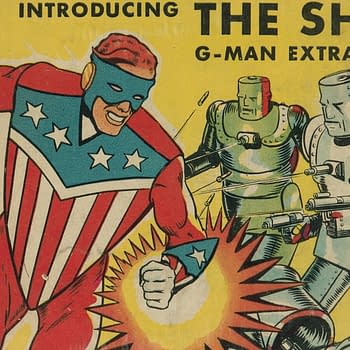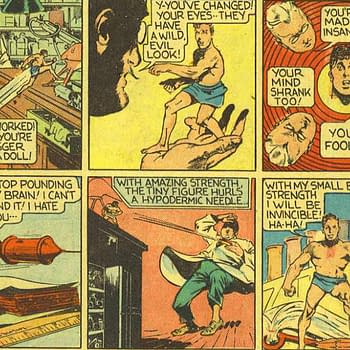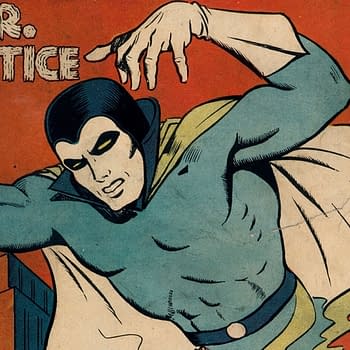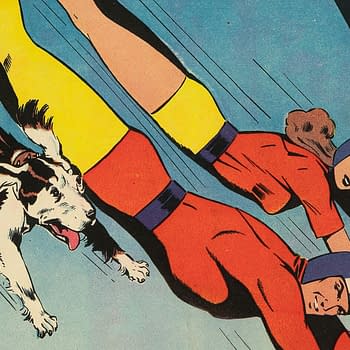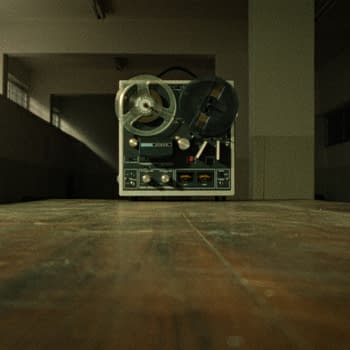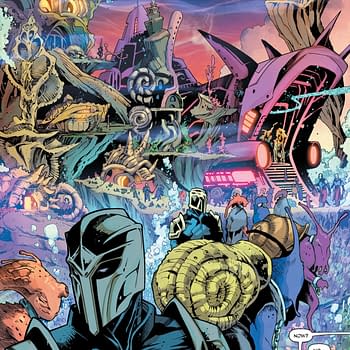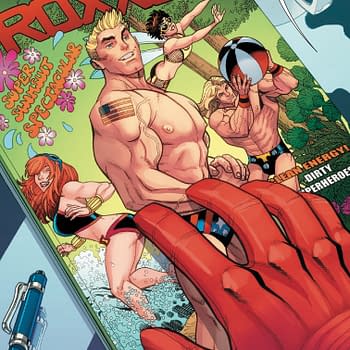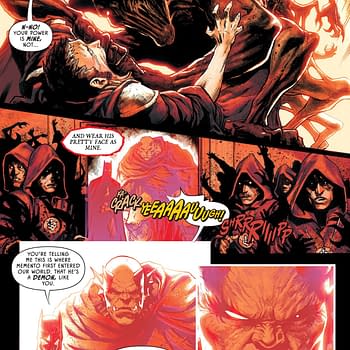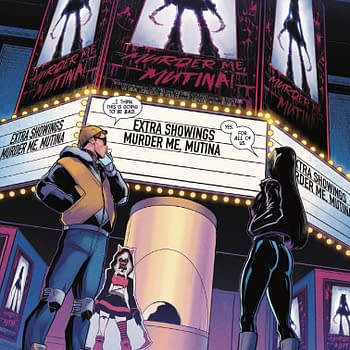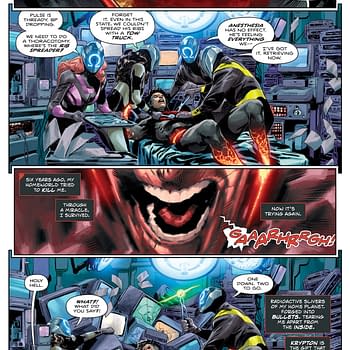Posted in: Comics, Look! It Moves! by Adi Tantimedh | Tagged: ender's game, look it moves, orson scott card
Ender's Game and the Child Soldier Blues – Look! It Moves! By Adi Tantimedh
Adi Tantimedh writes;
I'm not going to see the Ender's Game movie, since I never liked the book. I had this opinion long before Orson Scott Card's anti-gay views became public.
The studio that produced the movie has been in major damage-control mode, distancing itself and the movie from the author of the book, and also coming out to publicly support LGBT issues and causes and marriage equality. They also stated that the story of Ender's Game does not feature or involve homophobia, so it should be regarded as entirely separate from the original author's anti-gay views.
However, for me, there's still a big problem with it.
Ender's Game is about child-grooming.
That's not even the subtext. That's explicit. It's the plot. It's about a boy who's recruited to the military and manipulated to become a ruthlessly efficient tactician, commander and drone pilot and duped into committing genocide on an entire alien species. Even Harrison Ford, who plays General Graf, the officer who recruits and manipulates the hero into becoming what he is, has been aware of the complexities of playing a character who basically abuses a kid over a number of years – promising, withholding affection, coercing, lying to him – in order to mold him into the type of soldier/drone pilot the military needs to win a war with an alien species. For an actor, I can see the interest and challenge of playing that character.
The novel has been required reading in US military academies for its treatises on tactical thinking, and it's had its legion of fans, but they've all largely ignored or glossed over the fact that the hero of the story and others like him were groomed as children. My problem with the story is that the author has created a universe and a situation where the abuse and grooming of children is justified and necessary. You could say the story is a parable about the resilience of its tragic, persecuted kid hero surviving what he had been put through, and maybe that was its main emotional appeal, but I never really bought into it. I always found it creepy.
Metal Gears Solid 2:
Jormungand:
Gunslinger Girl:
I suppose there's a reason child soldiers don't figure that much in US fiction or pop culture. It is, after all, a war crime and a touchy subject. Of course, that hasn't stopped the Japanese from tackling it head-on. Ever since the revelation of child soldiers in Africa in the 1990s, there subject has popped up in Japanese pop fiction ever since. The video game Metal Gear Solid 2: Sons of Liberty featured Raiden, a former child soldier-turned-secret-agent who has gone on to more sequels like Metal Gear Solid 4: Guns of Liberty and this year's Metal Gear Rising: Revengence, which also featured child soldiers as part of its plot. Jormungand, the political thriller manga and anime about international arms dealing and espionage features Jonah, a rescued child soldier adopted into the heroine's surrogate family of mercenaries who serves as the series' conscience. Gunslinger Girl, set in Italy, features a secret government division that employs handlers who actively groom, monitor, brainwash and control emotionally-damaged young girls as assassins, since nobody ever suspects a little girl would be the killer coming to shoot them. The series was popular enough to have a manga that lasted for ten years and spawned two recent anime series and a video game.
While Ender's Game was originally published in 1985, all the other series mentioned here came along in the 2000s and have lasted through to today. I'm sure there are other series that I've missed or forgot to mention here, but for so many to be in existence constitutes a trend. The Japanese have always had a more direct approach to using current events to feed into their genre fiction than in the US, and tend to dive headlong into the deep end of thorny issues and ideas, and child soldiers have popped up time and again in Japanese pop fiction with a sense of horrified fascination, in line with Japanese pop culture's ongoing obsession with militarism. If you look at all of these series and thought it feels a bit creepy, you wouldn't be wrong. Intentionally or not, this is pop fiction reflecting reality, pop fiction as weird social commentary. Maybe it's pop culture's way of trying to come to terms with something so awful, but at the same time, it risks normalising it. They come out of a different social context that Ender's Game does, but somehow Ender's Game feels like the precedent to the whole genre.
The Ender's Game movie being released this year puts it firmly as part of the current trend, the fact that the hero is not just a child soldier, but also a drone pilot makes it feel current and part of the same trend as all the above anime and manga series.
I'm still not going to go see it.
No kids, only adults at lookitmoves@gmail.com
Follow the official LOOK! IT MOVES! twitter feed at http://twitter.com/lookitmoves for thoughts and snark on media and pop culture, stuff for future columns and stuff I may never spend a whole column writing about.
Look! It Moves! © Adisakdi Tantimedh








